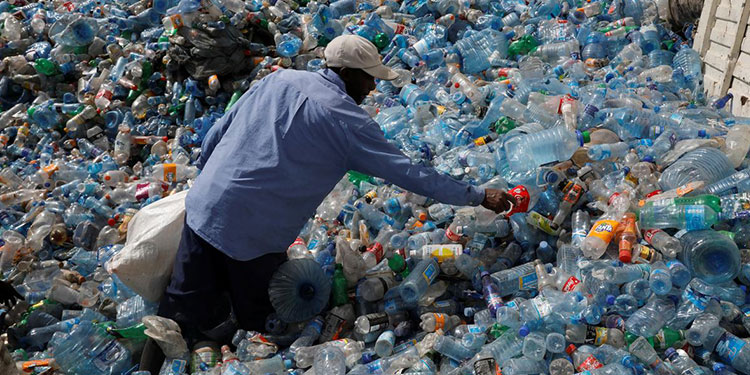 A firm in Rwanda has found ways to turn single-use plastic into construction material under tough new laws on the use of plastic and waste management. The tough laws stipulated a penalty of 50, 000 Rwandan francs ($52) for individuals dumping plastics in public space and 5 million Rwandan francs ($5,220) for the companies not adapting to proper waste management.
A firm in Rwanda has found ways to turn single-use plastic into construction material under tough new laws on the use of plastic and waste management. The tough laws stipulated a penalty of 50, 000 Rwandan francs ($52) for individuals dumping plastics in public space and 5 million Rwandan francs ($5,220) for the companies not adapting to proper waste management.
The government, however, gave businesses a grace period of three years to explore and adapt to alternative packaging materials.
To help companies to circumvent tough environmental laws, Coped Rwanda, local waste management, and recycling firm came up with the idea to recycle single-use plastic waste.
Speaking to Anadolu Agency, Paulin Buregeya, the chief executive of Coped, said an arrangement involves to collect waste plastic bottles through various centers in Kigali and then turn them into construction material.
About $80,000 was allocated to setting waste collection centers while equipment for turning collected plastic bottles into construction materials is a project worth roughly $2million, Buregeya said.
The used plastic bottles collected from beverage companies are turned into floor tiles, roof tiles, and pavers of various colors. The other plan is to recycle plastic bottles into new bottles but with approved standards and also to make fibers and cloth threads form them, the chief executive added.
Waste management to combat climate change:
Buregeya said research conducted his organization last year found that besides bottles many other items such as plastics pipes, jugs, basins and jerry cans, cups, or ice-cream cups and cosmetic containers can also be recycled. He said that few items like computer covers, electronic device shields, car dashboards, cables, and chargers are not recyclable.
We (waste management companies) are presenting plausible options to the companies using single-use plastics. We have found the solution for them, Buregeya said. He assured that vast quantities of plastics will no longer be found on garbage pits around towns in the country.
Environmental experts say a proper waste management plan will counter climate change issues and ensure clean air by reducing carbon emissions. Rwanda has promised to cut emissions at least by 16% by 2030.
According to Charles Karangwa, the regional technical coordinator of forests landscapes and livelihoods at the International Union for Conservation of Nature (IUCN) Eastern and Southern Africa, Rwanda was the first African country to submit a tougher climate target to the UN. Given the strong institutional and legal frameworks in place, Rwanda is well-positioned to benefit from ecosystem services, he said.
Rwanda’s Environment Minister Jeanne Mujawamariya said the government is working to build a green and climate-resilient nation that nurtures and values its biodiversity, with the ultimate goal to ensure a high standard of living for Rwandans in a healthy environment.


